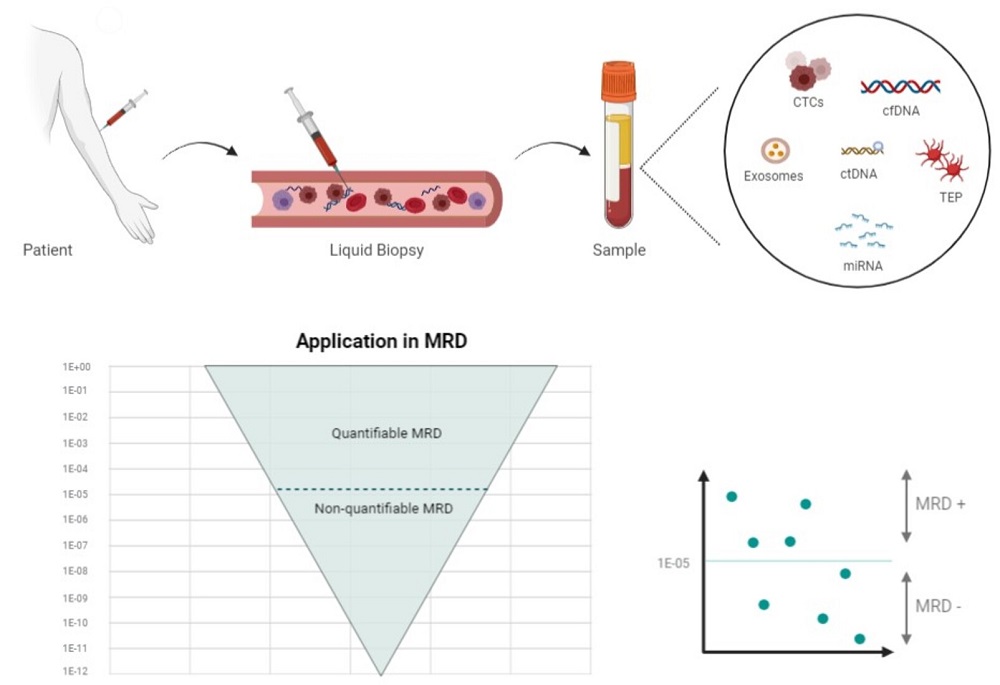The study of cell-free DNA (cfDNA) and other peripheral blood components (known as “liquid biopsies”) is promising and has been investigated especially in solid tumors. Nevertheless, it is increasingly showing greater utility in the diagnosis, prognosis, and response to treatment of hematological malignancies; in the future, it could prevent invasive techniques, such as bone marrow (BM) biopsy. Most of the studies about this topic have been focused on B cell lymphoid malignancies; some of them have shown that cfDNA can be used as a novel way for diagnosis and minimal residual monitoring in B cell lymphomas, using techniques such as next-generation sequencing (NGS). In myelodysplastic syndromes, multiple myeloma, or chronic lymphocytic leukemia, liquid biopsies may allow for an interesting genomic representation of the tumor clones affecting different lesions (spatial heterogeneity). In acute leukemias, it can be helpful in the monitoring of early treatment response and the prediction of treatment failure. In chronic lymphocytic leukemia, the evaluation of cfDNA permits the definition of clonal evolution and drug resistance in real-time. However, there are limitations such as the difficulty in obtaining sufficient circulating tumor DNA for achieving a high sensitivity to assess minimal residual disease or the lack of standardization of the method and clinical studies to confirm its prognostic impact. This review focuses on clinical applications of cfDNA on minimal residual disease in hematological malignancies.

